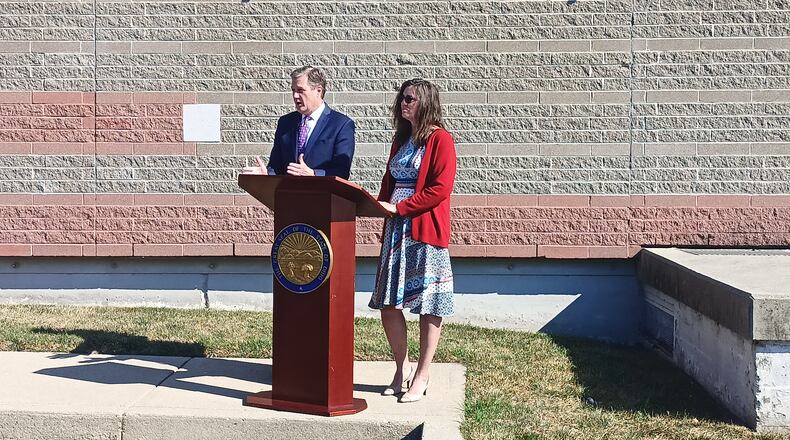Currently, states bid and contract with one baby formula manufacturer for the WIC program. Turner said that, as a result, three companies, Abbott, Reckitt, and Gerber, provide 95% of the total baby formula supply nationwide.
The baby formula shortage experienced earlier this year dealt with a shut down at an Abbott Nutrition plant in Michigan due to a contamination issue.
“It disrupted the entire system because it’s so constrained by the federal restrictions as to who could sell formula in various states based on the WIC program,” Turner said Thursday. “We want to break that up so there’s more providers in the market, so if we have this problem again, we won’t have this disruption in supply and people will be able to feed their children.”
Turner and supporters of the bill hope this will create better access for families not on the WIC program, too, as Turner said retailers follow the WIC program and supply more of the WIC-approved formula.
“A baby must have breast milk or formula for the whole first year of life, and so when stores only had a can or two on the shelf and there’s hundreds of moms shopping, it’s just not tenable,” said Tracey Waller, WIC program senior manager at PHDMC. “The system we have worked until it didn’t work, and now we’re finding out, we only had one factory go down in production and it really affected the entire nation.”
Waller said during the formula shortage, “parents were terrified.” The baby formula supply is more stable now, with the exception of specialized formulas for newborns with specific needs. Waller said those types of formula can still be difficult to find.
About the Author


